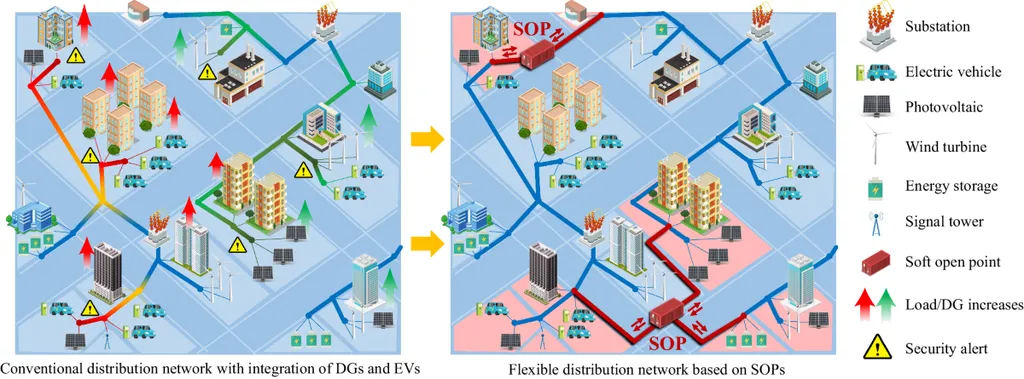In the rapidly evolving landscape of energy distribution, a groundbreaking study led by Xiaodan Yu from Tianjin University is set to revolutionize how we manage and analyze data in distribution networks. Published in the journal *Energy and Artificial Intelligence*, the research introduces a sophisticated framework designed to tackle the challenges posed by the increasing complexity of distribution networks and the high costs of measurement equipment.
Modern distribution networks, particularly those with high penetration of distributed energy resources (DERs), are expanding at an unprecedented rate. However, this growth comes with significant operational challenges, including state variability and incomplete measurement data. “Substantial data loss significantly compromises fault detection accuracy and network performance, creating obstacles for distributed energy management,” explains Yu. To address these issues, Yu and her team have developed a hybrid state estimation framework called MC-VMD-ARIMA-LSTM, which integrates alternating-minimization matrix completion (MC) with variational mode decomposition (VMD), autoregressive integrated moving average (ARIMA) modeling, and long short-term memory (LSTM) neural networks.
The framework operates on a dual-timescale approach. At individual time intervals, an alternating-minimization matrix completion model is formulated, incorporating linearized power flow constraints. For multi-timescale analysis, the measurement dataset undergoes VMD-based decomposition, with subsequent specialized processing where ARIMA handles low-frequency components and LSTM manages high-frequency residuals. The results of state estimation are obtained through systematic component reconstruction.
The implications of this research are profound for the energy sector. By enhancing the accuracy of state estimation in low-observability distribution networks, the framework can significantly improve fault detection and network performance. This, in turn, facilitates better distributed energy management, which is crucial for the stable and efficient operation of modern power grids.
“Our methodology not only addresses the current challenges but also paves the way for future advancements in the field,” says Yu. The research has been validated through comprehensive evaluations using the IEEE 33-bus distribution network and actual distribution system measurement datasets, demonstrating its effectiveness in both multi-timescale data assimilation and state estimation accuracy under limited observability conditions.
As the energy sector continues to evolve, the need for robust and accurate data analysis tools becomes increasingly critical. The MC-VMD-ARIMA-LSTM framework represents a significant step forward in this regard, offering a powerful solution to the complexities of modern distribution networks. With its ability to enhance state estimation and improve network performance, this research is poised to shape the future of energy management and distribution.

